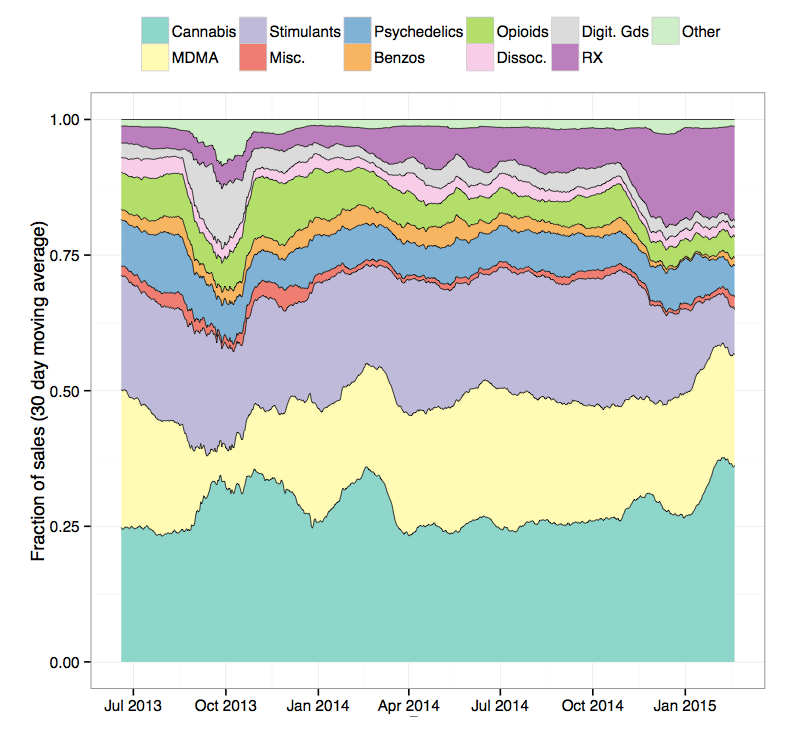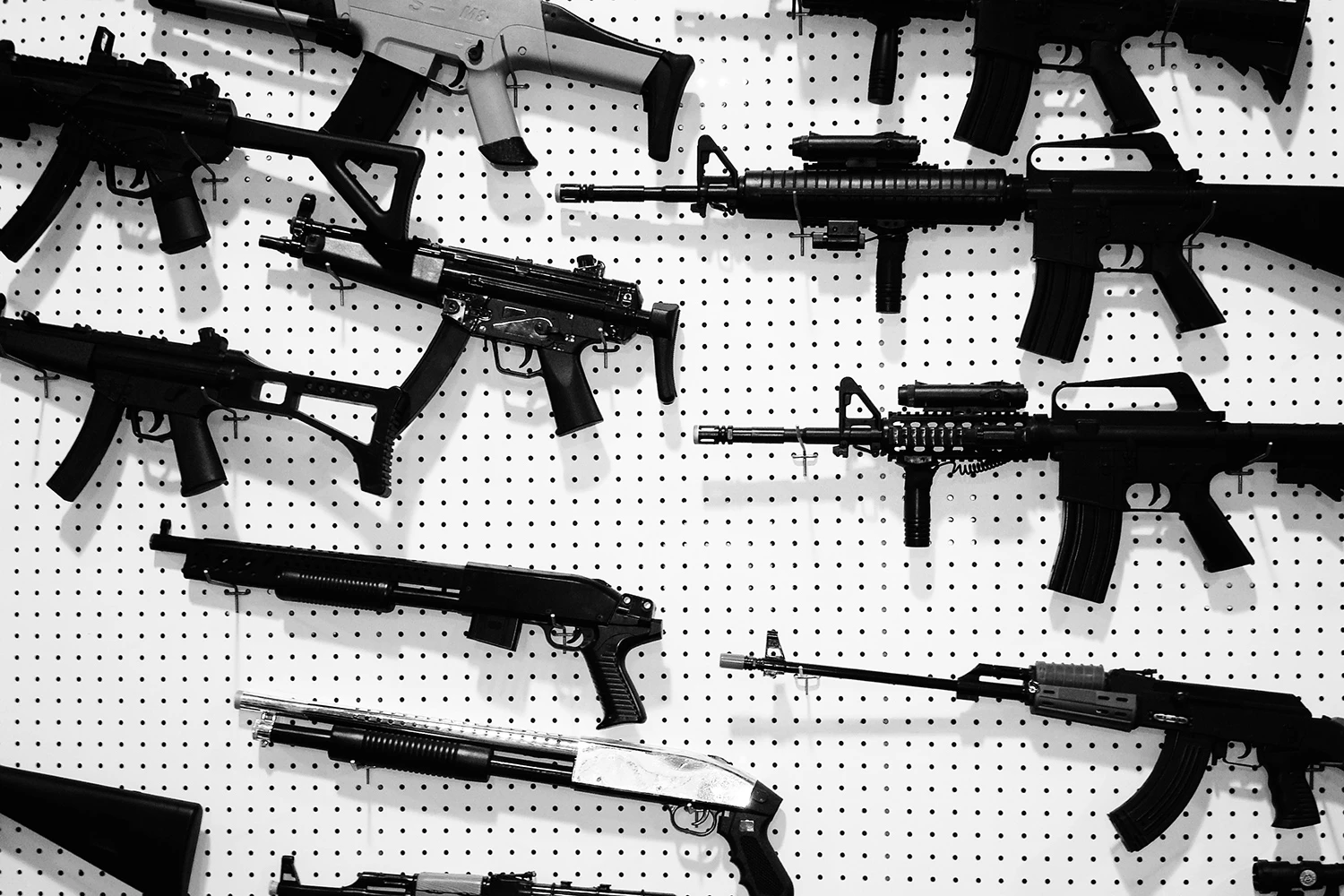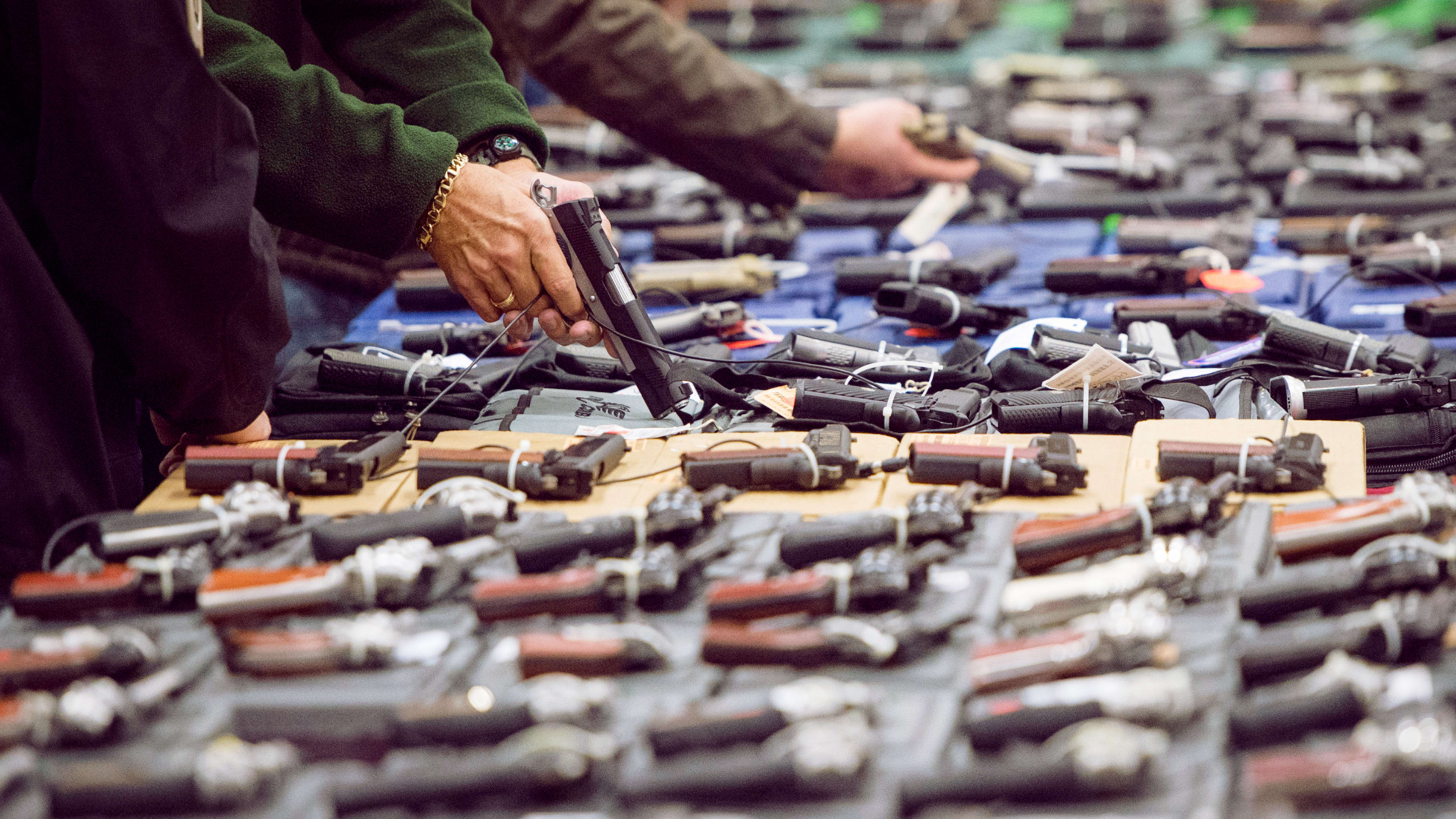This week, President Obama outlined a series of new executive actions aimed at curbing gun violence in the U.S. The most controversial part of the plan is a provision requiring all gun sellers to not only be licensed, but to perform background checks on the people to whom they’re selling firearms. This includes sellers at gun shows and online.
In a statement to reporters, Attorney General Loretta Lynch said that more and more guns are being sold over the Internet. Specifically, she mentioned the “dark web”—the encrypted underbelly of the Internet where users can trade in illegal goods anonymously. Perhaps the best-known example of a darknet market (or DNM) was Silk Road, before it was shut down in 2013.
But how exactly do gun sales work on the dark web black market—and how prolific are they, to warrant a specific mention from the head of the U.S. Department of Justice? To answer these questions, Fast Company spoke with Nicolas Christin, assistant research professor of electrical and computer engineering at Carnegie Mellon University. He’s one of the researchers behind a recent deep-dive analysis of sales on 35 marketplaces from 2013 to early 2015.
Surprisingly, Christin says that gun sales on the dark web are not all that common. “Weapons represent a very small portion of the overall trade on anonymous marketplaces,” he says. “There is some trade, but it is pretty much negligible.” Drugs are far more common. Specifically, MDMA and marijuana each account for about 25% of sales on the dark web, according to Christin’s research. But weapons are so uncommon that they were lumped into the “miscellaneous” category, along with drug paraphernalia, electronics, tobacco, Viagra, and steroids. Together those account for maybe 3% of sales.

Back in 2012, a Silk Road sister site for weapons called the Armory shut down a few months after launch due to lack of business. It relaunched under new leadership, but in 2014, someone from the site told Vocativ the Armory was making just 10 to 40 gun sales per month. In 2015, another marketplace called Agora also stopped allowing lethal weapon sales. There just isn’t a large demand for guns on the dark web.
One reason is because guns are hard to send through the mail, unlike drugs, which can be easily hidden and shipped in small quantities. Also, the dark web is riddled with scammers who take the buyer’s money and run, never delivering a gun at all.
Another reason people don’t buy guns on the dark web? They don’t need to. To acquire a gun through the black marketplace, a buyer would actually have to jump through more hoops than they would to buy a weapon in person.
Chritin explains: “Why would you go through the hassle of purchasing Bitcoin, logging into an anonymous marketplace, purchasing weapons from an online dealer, and potentially going through the further hassle of reassembling various weapon parts shipped in multiple parcels to your house, when you can get these weapons legally, e.g., at a gun show—without much of a background check?”

I also spoke with Gwern Branwen, an independent writer and researcher who served as a moderator for the subreddit r/darknetmarkets. Branwen has written in-depth about the workings of the dark web, analyzing sales data and translating it into detailed spreadsheets.
“When I stopped paying attention to the DNMs in June 2015, gun sales were still minuscule,” he says. He pointed me to a document showing Silk Road sales from 2011 through 2013. “Gun sales are so low that the SR1 spreadsheet does not include any entry relating to them.”
His data on the known arrests and prosecutions related to online black markets like Silk Road showed 312 prosecutions as of May 2015; 138 were from Silk Road, six from Agora. Most of the items sold were drugs–MDMA was the most popular (26 arrests), followed by marijuana (17), and LSD (16). Three arrests were gun-related.
So, either Lynch has data we don’t, or she’s confused about what exactly the dark web is. I reached out to both the Department of Justice and the Bureau of Alcohol, Tobacco, Firearms and Explosives (ATF), but did not receive a response. It’s possible, however, that Lynch was referring to online marketplaces like Armslist, “the largest free gun classifieds on the web.” Armslist isn’t part of the dark web, but it does facilitate the buying and selling of guns privately and mostly unregulated in a way that is actually easier than on darknet marketplaces. The president’s executive action would crack down on illegal sales by forcing sellers on Armslist to register as gun dealers.
To aid in the government’s new policies, the ATF will get 200 new agents and put $4 million toward tracking illegal gun sales online. “The industry is shifting and growing,” Lynch said. “If it does stop one act of violence, this will be worth it.”
Recognize your brand’s excellence by applying to this year’s Brands That Matter Awards before the early-rate deadline, May 3.
